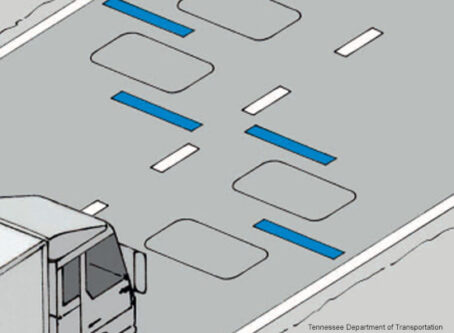Speed limiters create a states’ rights issue, Rep. Brecheen says
States should be able to determine how best to govern their roads.
That thinking is one of the motivators behind Rep. Josh Brecheen’s introduction of the DRIVE Act, which would prohibit the Federal Motor Carrier Safety Administration from promulgating any rule or regulation mandating speed limiters on commercial motor vehicles.
Brecheen, R-Okla., introduced the Deregulating Restrictions on Interstate Vehicles and Eighteen Wheelers Act. According to Congress.gov, HR3039, already has the support of five co-sponsors.
In an interview with Land Line Now conducted on May 5, Brecheen explained his safety concerns about large speed differentials, as well as why he believes mandating speed limiters would create a states’ rights issue.
Many states that once had separate speed limits for cars and heavy-duty trucks changed their laws because they believed it is safer for vehicles traveling on the same road to be operating at the same speed. Brecheen said that if FMCSA is allowed to determine trucks’ top speed, it would remove a state’s ability to govern its roads.
“We need the ability to have our state legislators and state senators to listen to the people and make adjustments,” Brecheen told Land Line Now. “When the federal government does something, it’s put in place, and ingenuity and creativity is often lost. We need the ability to adjust to different conditions.”
Last year, FMCSA issued an advance notice of supplemental proposed rulemaking that considers requiring commercial motor vehicles with a gross vehicle weight of 26,001 pounds or more to be equipped with speed-limiting devices. A top speed was not determined in the advance notice, but previous proposals floated the possibilities of 60, 65 and 68 miles per hour.
More than 15,000 comments were filed on the advance notice, and the majority came from truck drivers opposed to a mandate. That hasn’t stopped the FMCSA from moving forward. The agency is expected to issue a notice of proposed rulemaking as early as June. At that time, FMCSA would likely propose a top speed.
Whether the top speed is 60 mph – which is what the truck safety groups and the Teamsters propose – or as fast as 68 mph, it will create large speed differentials between cars and trucks.
Some states have speed limits as fast as 85 mph, meaning that the flow of traffic can be traveling even faster.
Brecheen said it’s an accident waiting to happen.
“You have states with 85 mph speed limits and then you have someone texting and driving and not paying attention and then rear ends (the truck),” Brecheen said. “Let’s say that tractor-trailer has an excavator on the back … there’s no opportunity (to correct) going 30 mph less when that person gets rear-ended … That’s the kind of stuff we’re talking about here – a 30 mph difference, because one is limited by federal law and the other is traveling 30 mph faster because of state law.”
The Owner-Operator Independent Drivers Association opposes mandatory speed limiters and supports Brecheen’s efforts to prevent another regulatory burden for truckers.
“The physics is straightforward – limiting trucks to speeds below the flow of traffic increases interactions between vehicles and leads to more crashes,” said OOIDA President Todd Spencer. “OOIDA and our 150,000 members in small-business trucking across America thank Congressman Brecheen for his leadership in keeping our roadways safe for truckers and for all road users.”
The American Trucking Associations, however, opposes the DRIVE Act.
“The easiest position anyone in Washington can take is ‘no.’ It requires little effort, zero facts, and an unwillingness to compromise. ATA isn’t the association of ‘no.’ We put safety first,” ATA President Chris Spear said in a statement. “We deploy the best technology to help save lives. In short, we care about the motoring public, and we feel our position on a speed limiter rule is based on data, not baseless rhetoric. Driving as fast as you can as long as you like kicks safety to the curb. It’s irresponsible. Safety is a winning issue, and ATA enjoys winning. This issue is no exception.”
Despite the statement, ATA has previously expressed concerns about speed differentials.
“We have consistently opposed efforts by anti-truck groups to pursue a speed-limiter rule setting speeds in the low 60s,” ATA wrote on its website.
“Official ATA policy supports a maximum set speed of 70 mph in trucks equipped with automatic emergency braking and adaptive cruise control. In trucks without those safety features, our policy supports a maximum set speed of 65 mph.”
In its comments to FMCSA last year, ATA wrote that speed differentials could result in increased “aggressive and unsafe behavior by car drivers seeking to overtake slower vehicles.” LL









